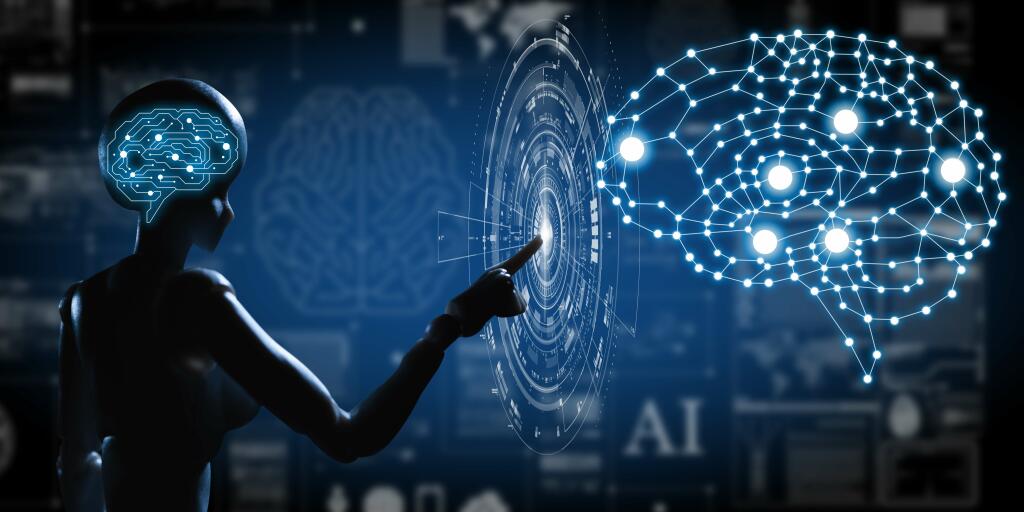NLP could help in translating human speech and make it understandable by a machine to extract meaning from the information communicated. John Snow Labs provides both free and paid options for their Healthcare Natural Language Processing solutions, catering to users with diverse needs and preferences. NLP for Data Privacy and Security
Natural language processing de-identifies patient data, preserving data utility for research while ensuring compliance with privacy regulations and safeguarding patient confidentiality. A clinician has developed a report card that uses NLP to automatically calculate ADR. Studies show that when physicians can see quantifiable results of their performance, they tend to change their behavior.
One of the most common uses of NLP in healthcare is to extract relevant information from unstructured patient data, such as clinical notes, medical records, lab reports, or transcripts of doctor-patient conversations. This can help them to make better decisions, provide personalized care, and reduce errors and costs. Huge volumes of unstructured patient data is inputted into electronic health records on a daily basis by the healthcare industry, but it’s hard for a computer to help physicians aggregate that critical data. Structured data like claims or CCDAs / FHIR APIs may help determine disease burden, but gives us a limited view of the actual patient record.
Driving Factors Behind NLP in Healthcare
By leveraging advanced algorithms, Natural language processing for healthcare documents enhances efficiency, accuracy, and decision-making in healthcare settings. While the four areas in which NLP enhances the value of healthcare data show significant promise, NLP has a long way to go to widespread adoption and a large-scale impact on outcomes improvement. Showcasing one of the important use cases of NLP in Healthcare, Repustate’s NLP model was able to classify, organize and search all progress notes in their entire system at an organizational level. The engine sorted the information tagged and stored in each health record and ran reports to monitor the effectiveness of medications and/or dosage combinations.

NLP in healthcare companies can help them with Computer-assisted coding (CAC) to extract billing details from a record and then translate them into standard billing codes. Using NLP for CAC eliminates the need for professional coders to perform the medical coding procedure. This NLP use case is also about making the most out of vast information to derive concrete insights.
The Low-Hanging Fruit: Easy for NLP to Identify and Process
For example, NLP will permit phenotypes to be defined by the patients’ current conditions instead of the knowledge of professionals. NLP has matured its use case in speech recognition over the years by allowing clinicians to transcribe notes for useful EHR data entry. Front-end speech recognition eliminates the task of physicians to dictate notes instead of having to sit at a point of care, while back-end technology works to detect and correct any errors in the transcription before passing it on for human proofing. When it comes to providing your patients with exceptional and, in some cases, life-saving care, you can’t afford to let anything stand in your way — especially not unstructured data.

In particular, NLP in healthcare can help medical practitioners save time by automatically extracting the data they need within medical records. This allows them to more quickly identify important information that would otherwise take manual effort to locate. Additionally, natural language processing in healthcare has been used to automate the summarization of clinical notes for improved decision-making support and data mining for population health insights. As a result of its many applications in healthcare settings, the NLP system has become an essential part of clinical workflow optimization and clinical trial matching efforts across the sector.
Why is NLP valuable to providers?
Since speaking is often faster than typing, using NLP technology speeds up the EHR workflow – allowing providers to spend less time interacting with the EHR interface and more time focused on direct patient care. With physician burnout driving many to leave medicine for other fields, NLP can be a useful tool to help reduce the clinician HIT burden. Natural language processing is a specialized branch of artificial intelligence that enables computers to understand and interpret human speech. But nowadays, time flies faster than ever and patients expect flexible and possibly 24/7 healthcare services. Luckily, bots can help speed up many bureaucratic procedures by unlocking self-service payments, online doctor bookings, and so on.

Healthcare NLP employs specific models that are capable of cleaning large unstructured health datasets for scrutinizing prior to missed or inadequately coded patient conditions. NLP medical records, that are implementing ML algorithms, could unfold diseases that are not coded previously. Though, NLP in healthcare can precisely deliver significance to the unstructured data, providing unbelievable insight into understanding aspects, enhancing analyzing methods, and yield exceptional outcomes for patients. Healthcare data includes patients health data like report status, past and present medical records, symptoms, and diagnoses, etc.
Join The Global NLP Community
NLP, a branch of AI, aims at primarily reducing the distance between the capabilities of a human and a machine. As it beginning to get more and more traction in the healthcare space, providers are focusing on developing solutions that can understand, analyze, and generate languages can humans can understand. NLP for Patient Sentiment Analysis
Natural language processing assesses patient feedback and social media posts, identifying areas for healthcare service improvement and enhancing patient satisfaction. Natural language processing for healthcare plays a crucial role in working with healthcare documents, offering a range of benefits and transforming the way healthcare professionals handle and extract information from these documents.
- Right from the current and past health record, their exponential increment and utility, and the digital transformation of medicine has led to a huge jump in the volume of data with healthcare organizations.
- Since the healthcare system has started adopting cutting-edge technologies, there is a vast amount of data collected in silos.
- The healthcare industry can use NLP to analyze a variety of compounds and existing drugs to find insights for drug development.
- Healthcare organizations can take a few steps to improve the capabilities of their Artificial Intelligence and NLP systems.
- Much of the clinical notes are in amorphous form, but NLP can automatically examine those.
- The growth and innovation in the healthcare domain have been gradual and at their own pace.
- Using NLP in assessing the blueprint of implementing technology could help in detecting operation accuracy and risk management in prior.
A distinct advantage natural language processing medical records offers is the ability for computer assisted coding to synthesize the content of long chart notes into just the important points. Historically, this could take organizations weeks, months, even years, to manually review and process stacks of chart notes from health records, just to identify the pertinent info. Natural language processing software for healthcare can scan clinical text data within seconds and using machine learning models, identify what needs to be extracted. This frees up physicians and staff resources to focus more on the complex matters and reduces the time spent on redundant administrative policy. When computers can understand physician notation accurately and process that healthcare data accordingly, valuable decision support can be obtained. These insights can be of significant use for future drug research and personalized medicine, which is good for patients and providers.
Natural Language Processing in Healthcare: Using Text Analysis for Medical Documentation and Decision-Making
The aim is to provide a snapshot of some of the
most exciting work published in the various research areas of the journal. The implementation was seamless thanks to their developer natural language processing examples friendly API and great documentation. Whenever our team had questions, Repustate provided fast, responsive support to ensure our questions and concerns were never left hanging.
Medical coding is the process of extracting billable information from a medical record and then translating it into standardized codes used for medical billing. The traditional way of handling it was employing a professional medical coder who must know enough information about the procedure or at least the ability to consult with a provider who performed the procedure. The lack of communication or the knowledge of regularly updated code sets results in errors. IMO has developed an Application Programming Interface (API) now available to Snowflake customers, to help streamline healthcare data normalization. Natural language processing is a rapidly evolving branch of artificial intelligence that involves giving computers the capacity to understand spoken and written language. There’s no time like the present to get started — contact us today to learn more.
Better Decision-making for Healthcare Practices
Given the complexities both within the field and within each organization, we believe the greatest value comes from having partners and tools available to build the AI and NLP technologies most relevant to your unique needs. Moreover, a knowledge graph encodes actualities, also known as concepts, and maps the corresponding relationship to one another. All these relationships build a data-web that can be deployed while computing applications and enabling https://www.globalcloudteam.com/ NLP systems to think about medicine, similar to how a human might. EHR practices and various responsibilities, performed by medical bodies such as documentation and billing, generally lead to overload as work in the traditional healthcare space. In the same line, most of the organizations have already deployed virtual assistants (Siri, Cortana, and Alexa) into administrative support, assisting in customer services duties and reducing desk burdens.
